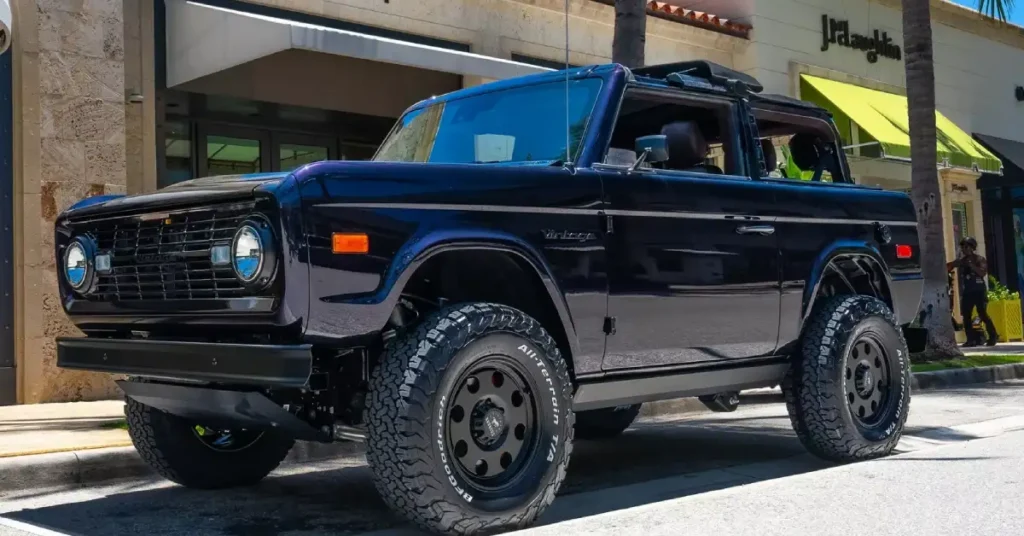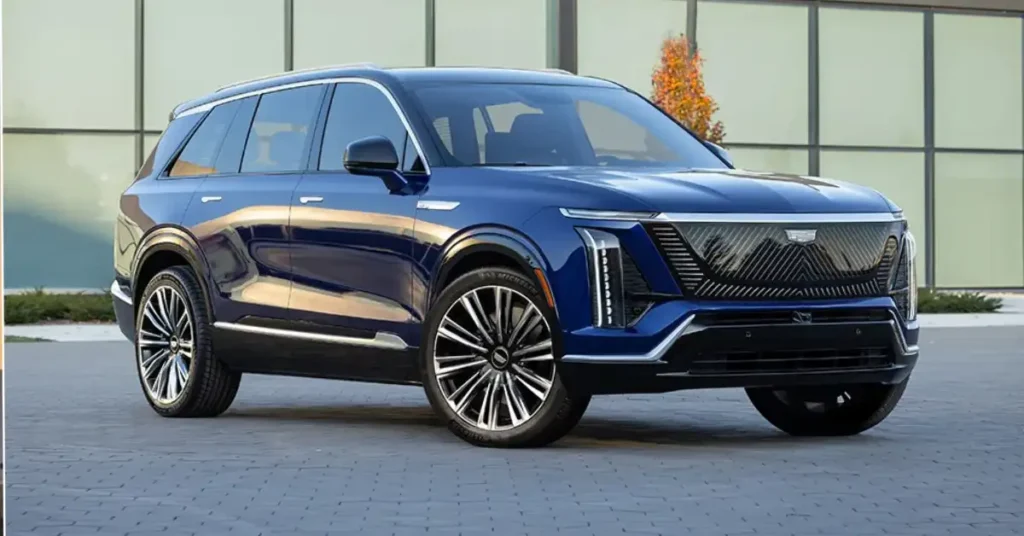In a lawsuit that pits nostalgia against intellectual property, Ford Motor Company has taken legal action against tuning firm Vintage Modern, accusing it of trademark infringement. The dispute centers on Vintage Modern’s practice of modifying new Ford Broncos to emulate the retro look of the 1960s models. Filed on Halloween, the lawsuit has drawn attention to the intersection of brand identity, customization, and consumer appeal.
The Allegations: Ford Protects Its Bronco Brand
Ford alleges that Vintage Modern is unfairly profiting from the Bronco’s iconic design—a style that has been carefully cultivated over decades. The automaker asserts that these modifications mislead consumers into believing the vehicles have Ford’s endorsement. The lawsuit, filed in the U.S. District Court for the Northern District of Georgia, seeks a jury trial to address these claims.
A Ford spokesperson reinforced the company’s position, stating, “We have an obligation to take all appropriate steps to stop those who put customers at risk and ride on the coattails of Ford’s significant investment and reputation.”
Vintage Modern’s Defense: A Blend of Retro and Modern
Vintage Modern counters that their builds are modern vehicles with retro aesthetics, offering the reliability, safety, and features of a new Bronco in a nostalgic wrapper. Their modified Broncos include contemporary features such as:
- Anti-lock brakes (ABS)
- Traction and stability control
- Rearview cameras
- Air conditioning
- App connectivity with Android Auto and Apple CarPlay
The firm has explicitly stated on its website that it is not affiliated with Ford, displaying a disclaimer that reads: “Vintage Modern has no sponsorship, association, approval, or endorsement from any motor company including Ford Motor Company.”
However, the company’s use of a Bronco-inspired logo has drawn scrutiny. The logo closely resembles Ford’s original branding, though altered in subtle ways that some critics have described as “amateurish.” This similarity could be central to Ford’s claim of trademark infringement.
What’s at Stake for Ford?
Ford’s lawsuit reflects its broader commitment to safeguarding the Bronco brand, which has seen a resurgence in popularity since its reintroduction in 2020. The company has invested heavily in the design, marketing, and production of the Bronco, which has become one of its most iconic models.
Allowing third parties to profit from its design without proper licensing could undermine Ford’s control over its brand image and intellectual property. Moreover, Ford argues that these modifications could put customers at risk if they assume the vehicles are officially endorsed by the company.
The Risk for Vintage Modern
For Vintage Modern, the lawsuit could pose a significant threat to its business model. While the company markets its vehicles as high-quality retro-modern hybrids, Ford’s claims could tarnish its reputation and limit its ability to operate. The jury’s decision will likely hinge on whether Vintage Modern’s modifications constitute a genuine transformation or if they unfairly capitalize on Ford’s branding.
Legal and Industry Implications
This case highlights a growing tension in the auto industry between manufacturers and aftermarket tuners. As automakers invest in building recognizable brands, they are increasingly protective of their intellectual property. At the same time, tuners cater to niche markets by offering customizations that manufacturers do not.
If Ford succeeds, the case could set a precedent for how far tuners can go in modifying vehicles without infringing on trademarks. It could also push manufacturers to collaborate more closely with tuners to offer licensed modifications.
Also Read: New Maruti Suzuki Hustler: 45kmpl Mileage and Affordable Pricing
Consumer Perspective: Retro Appeal Meets Modern Features
From a consumer standpoint, the appeal of Vintage Modern’s retro Broncos lies in their fusion of nostalgia and modernity. Buyers get the best of both worlds: the classic look of a 1960s Bronco and the advanced safety and convenience features of a 2020s vehicle.
However, Ford’s argument about misleading branding raises questions about transparency. Customers who assume these retro Broncos are endorsed by Ford might expect a level of quality assurance that the company did not provide.
The Road Ahead: Jury Trial Awaits
As the lawsuit moves forward, both Ford and Vintage Modern will need to convince a jury of their claims. For Ford, it’s about protecting its intellectual property and brand legacy. For Vintage Modern, it’s about defending its right to create unique vehicles that appeal to a specific market.
This case serves as a reminder of the fine line between customization and copyright infringement in the automotive world. Whether Ford emerges victorious or Vintage Modern proves its modifications are transformative enough, the outcome will likely shape the future of tuner-manufacturer relationships.
My Name is M Anas. I am a passionate blogger with a knack for sharing insights on technology, autos, Mobile Phone, etc. With a creative flair and a commitment to delivering engaging content, Anas aims to inspire and inform readers with unique perspectives and well-researched articles.


